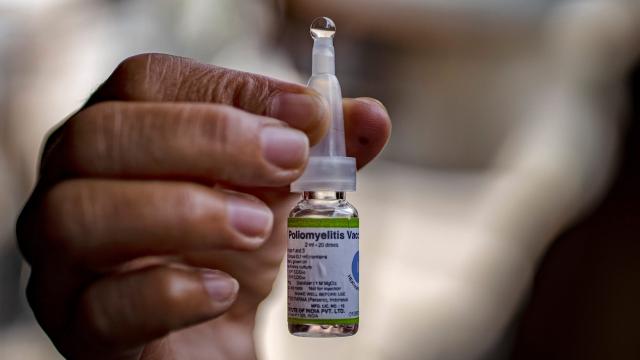The Trump Administration’s early reaction to the outbreak of a new coronavirus that’s near certain to hit the U.S. hard hasn’t been great, to put it lightly.
One clear example of that this week was U.S. Health and Human Services Secretary Alex Azar’s initial refusal to promise that an eventual vaccine for the virus wouldn’t be out of reach financially for the public, arguing they couldn’t “control that price because we need the private sector to invest.” It was a response that provoked sharp condemnation from public health experts and Democratic lawmakers such as U.S. House Speaker Nancy Pelosi, who noted that any vaccine would be developed with taxpayer money and demanded it be made “affordable.” A day later, the administration walked back Azar’s comment, stating that of course a future vaccine would be affordable.
But even this demand misses the mark. The coronavirus vaccine, if and when it comes, shouldn’t just be affordable to the public”it should downright be free.
Famously, scientist Jonah Salk did not patent the first widely successful polio vaccine he helped develop in the early 1950s. When asked in 1955 who owned the patent, he replied, “Well, the people, I would say. There is no patent. Could you patent the Sun?”
Of course, as is often the case with history, this heartwarming anecdote isn’t as quite as simple as that. Salk’s vaccine was a massive collaborative effort, and his partners at the non-profit organisation now known as the March of Dimes did look into obtaining a patent, before determining that it legally wouldn’t pass muster.
Just because a product is patented doesn’t mean that it can’t be sold for very cheap or free at the behest of the owner, but the development and eventual rollout of the vaccine was funded largely through the public, and Salk certainly chose not to profit from his creation, which could have gotten him up to $US7 ($11) billion by some estimates.
Salk’s sentiment underscores the collective spirit that drives much of science. Most scientists, in this reporter’s experience, do what they do for the sake of others, not to make a buck. That’s especially true in vaccine research, which traditionally is one of the lowest profit-makers for the pharmaceutical industry.Â
Leaving aside the intentions of the people who create vaccines, making any coronavirus vaccine free to the public is also just smart.
Perhaps more than any other type of medicine, the success of a vaccine depends on the cooperation of everyone. To protect those who can’t have a vaccine, such as the very young or immunocompromised, we need massive buy-in from the population at large. Once you vaccinate most people in a population, you can create a herd immunity that will keep a contagious disease from spreading too far along a chain of transmission (this also depends on the effectiveness of a vaccine itself).
Not only would a costly vaccine be unaffordable to some Americans”keep in mind that almost half the country has less than $US400 ($617) available for an emergency”it’d alienate the public. It’s going to be harder to convince people that getting a coronavirus vaccine is the right thing to do if it you’re holding their health ransom by dangling a price tag next to it. Many vaccination programs around the world already try to remedy this lack of access or trust by making vaccines free to low-income families.
Of course, when we talk about vaccines being free, that doesn’t mean the companies that produce them aren’t earning any money”just that the costs would be subsidized by governments, who would have the bargaining power to negotiate lower prices. And as with the potential coronavirus vaccines, many of the vaccines we have today were already developed with the help of government funding, so the public would effectively be earning back some of their own tax paid investment.
But Azar’s original justification about first needing to protect the financial interests of vaccine makers points to a systemic rot within the industry itself. We’re in the middle of a crisis for a huge number of health problems”from antibiotic-resistant superbugs to Alzheimer’s“in part because the industry doesn’t want to fund research into new treatments that won’t make them as much money as the next cholesterol-lowering drug.
Elsewhere, the demand for large profit margins is helping sink literally eradicate hepatitis C worldwide within the next decade, but we probably won’t, no thanks to the high costs for recently developed, extremely effective antivirals.
And even though the coronavirus outbreak hasn’t yet hit the U.S. as hard as other countries (though local outbreaks are clearly imminent), people are already being fed to the U.S. health care system because of it. Several people being monitored or suspected of having the virus have alleged that their care has racked up thousands in medical bills.
To be clear, it’s not likely that a vaccine for the new coronavirus will arrive anytime soon. Assuming some good fortune, we might get one within 18 months. But if even we beat this virus back before then, it could return, in which case a vaccine would be immensely helpful. By then, the familiar question of whether profits or people matter more will be asked again. Hopefully, the answer will be different than usual, but I wouldn’t bet money on it.
